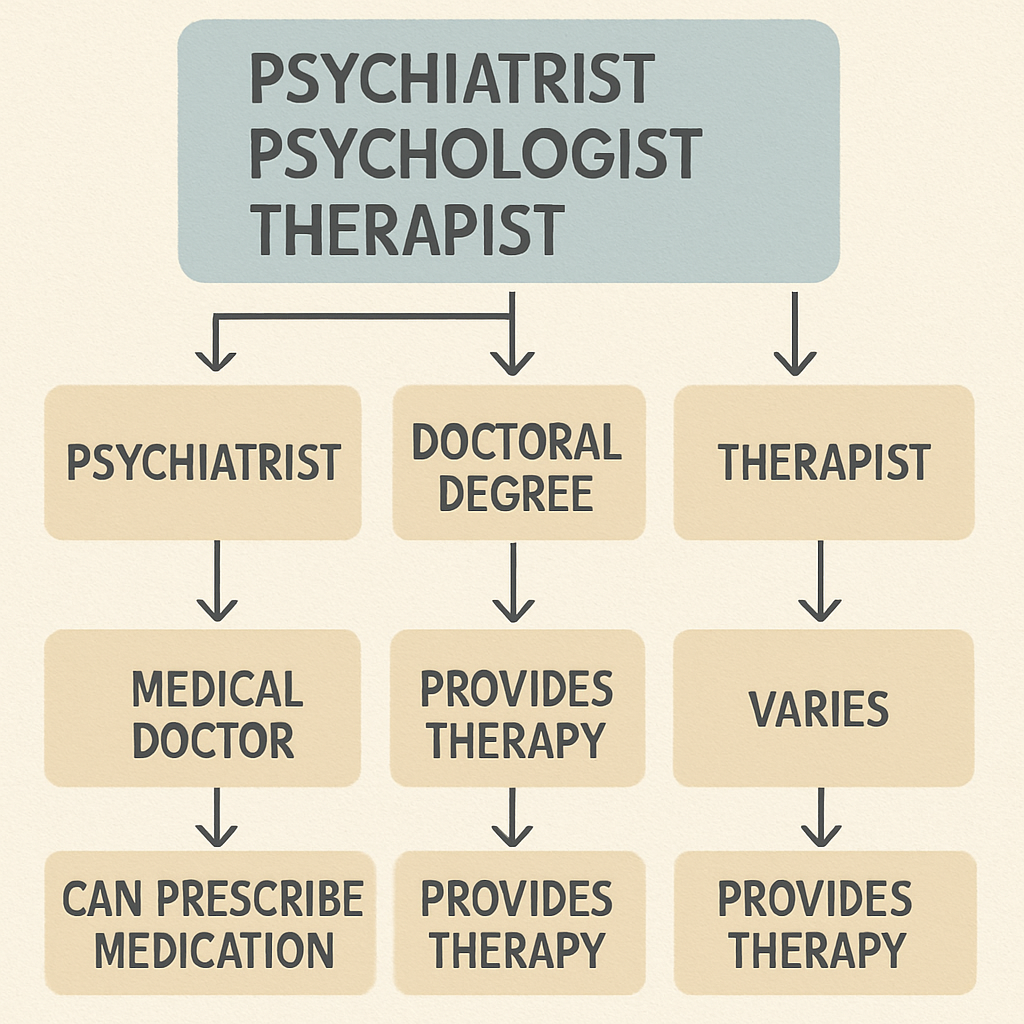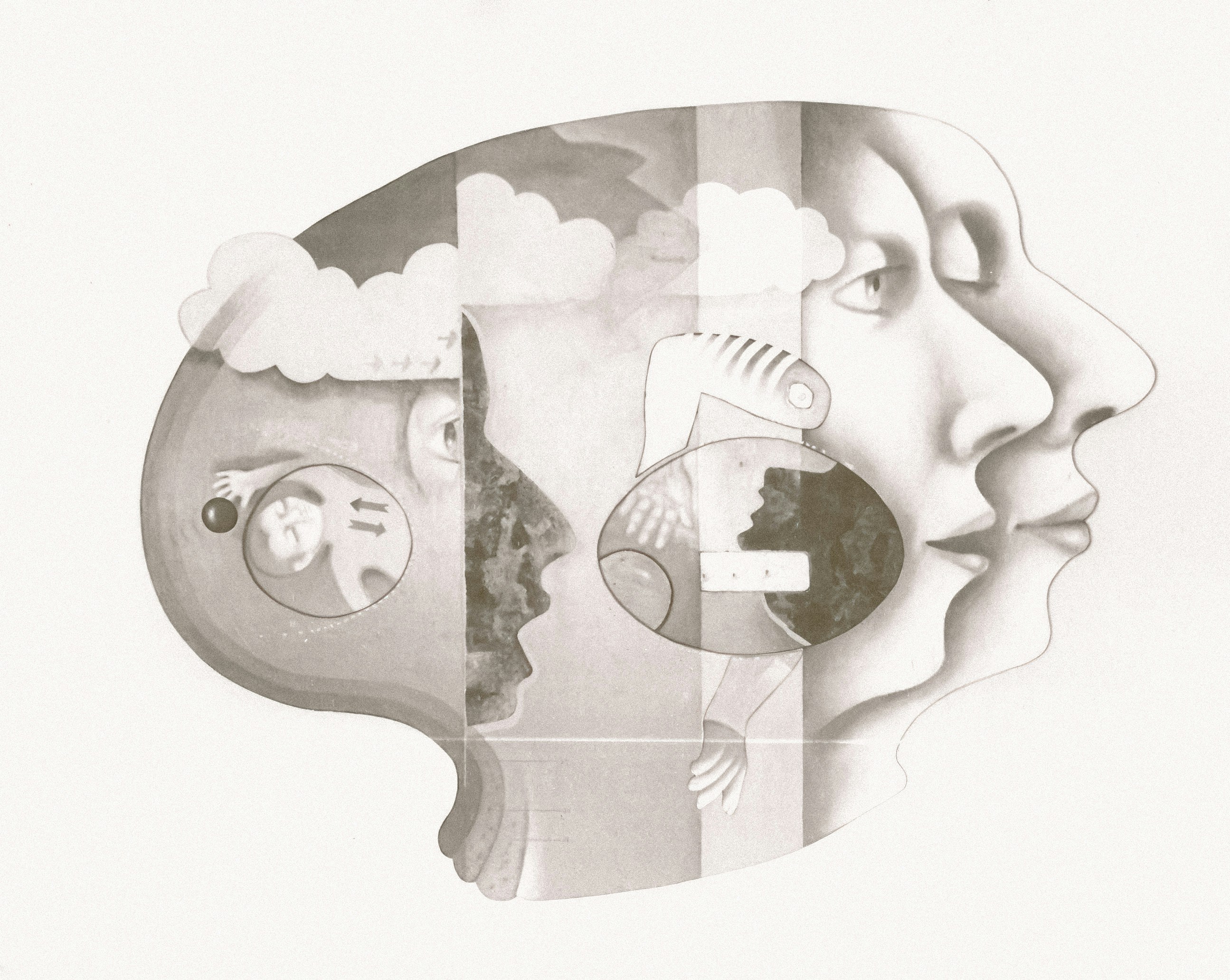August 11, 2025
Discover the essential role of therapy psychiatrists, who offer a mix of medication and therapy for comprehensive mental health care. Learn how they differ from psychologists and therapists, and explore the benefits of telehealth psychiatry in accessing care conveniently.
Navigating mental health care can be daunting. Understanding the role of therapy psychiatrists is crucial for effective treatment. These professionals are medical doctors specializing in mental health.
Therapy psychiatrists diagnose and treat mental disorders. They use a mix of medication and therapy. This dual approach helps address complex mental health issues.
Unlike psychologists, psychiatrists can prescribe medication. This ability is vital for managing conditions like depression and anxiety. They also provide therapy, though not all do.
Telehealth psychiatry is growing. It offers convenient access to care. Online services make it easier to consult a psychiatrist.
Choosing between a psychiatrist, psychologist, or therapist depends on your needs. Understanding their roles helps in making informed decisions.
A therapy psychiatrist is a medical professional dedicated to mental health care. They are trained to diagnose and treat a range of mental disorders. This involves understanding the intricate link between physical and mental health.
These professionals hold a Doctor of Medicine (MD) degree. They have completed additional training in psychiatry. This equips them with the skills to offer comprehensive care.
Psychiatrists often use both therapy and medication. This combination allows them to tailor treatments to individual needs. They strive to improve patients' mental well-being.
Key aspects of a therapy psychiatrist's role include:

Their role extends beyond just managing symptoms. Therapy psychiatrists aim to help patients lead fulfilling lives. They support individuals through life challenges and transitions.
Understanding the differences between psychiatrists, psychologists, and therapists is crucial. Each plays a distinct role in mental health care. Their training and abilities differentiate them significantly.
Psychiatrists are medical doctors. They can prescribe medication and often handle more severe mental health issues. Their medical training provides insights into the biological aspects of mental disorders.
Psychologists, however, usually hold a doctoral degree in psychology, such as a PhD. They focus on therapy and behavioral intervention. They often use talk therapy to help patients explore and resolve issues.
Therapists, which include licensed social workers and counselors, offer supportive counseling. They may hold a master's degree in their field. Their approach is typically more centered on specific problem-solving techniques.
Key distinctions include:

Choosing between them depends on your needs. Medical issues may require a psychiatrist. Psychological assessments may benefit from a psychologist. For counseling and support, a therapist could be suitable.
Therapy psychiatrists play a pivotal role in mental health care. They specialize in diagnosing and treating mental health disorders. Their approach often integrates both medication and therapy.
In addition to prescribing medication, they can provide psychotherapy. This dual approach allows for comprehensive treatment plans tailored to individual needs. Such plans often aim to address both biological and psychological aspects of disorders.
Therapy psychiatrists are skilled in a variety of psychotherapeutic techniques. These include cognitive-behavioral therapy and psychodynamic therapy. They use these to help patients understand and overcome their challenges.
Common tasks for therapy psychiatrists include:

by konstantinos Karasantes (https://unsplash.com/@webpanelman)
Their work often involves collaborating with other mental health professionals. This ensures that patients receive holistic care. The goal is always to improve overall mental health and well-being.
Psychiatry encompasses various subfields, each focusing on different aspects of mental health. These areas allow psychiatrists to specialize and tailor their approach based on patient needs. Understanding these types can help individuals seek the right kind of care.
Child and adolescent psychiatry centers on early developmental stages. For younger patients, addressing mental health issues can prevent lifelong complications. This subfield specializes in disorders like ADHD and anxiety.
Geriatric psychiatry focuses on mental health in older adults. This includes managing age-related disorders like dementia. Geriatric psychiatrists offer specialized care to help maintain mental wellness in the elderly.
Common specialties in psychiatry include:

by Wiki Sinaloa (https://unsplash.com/@wikisinaloa)
Through these specialties, therapy psychiatrists provide tailored care. This specialized knowledge ensures effective treatment plans. It leads to better outcomes in diverse patient populations.
Psychiatrists are not just limited to prescribing medication. Many also engage in psychotherapy, allowing for a more comprehensive approach to treatment. This dual capability offers a balanced mental health care strategy.
Psychiatric therapy can range from cognitive behavioral therapy (CBT) to more specialized forms. Psychiatrists might blend therapeutic techniques with medication management. This combination can enhance the overall effectiveness of treatment.
While not all psychiatrists provide direct therapy, many collaborate with therapists. They ensure patients receive a holistic treatment plan. Here’s what therapy by psychiatrists may include:
Psychiatrists who offer therapy contribute significantly to mental health recovery. They bridge the gap between medical and therapeutic interventions.
Yes, psychiatrists can prescribe medication as part of their treatment plans. This ability sets them apart from psychologists and therapists. Medication is often crucial for managing severe mental health conditions.
Psychiatrists are trained medical doctors. Their training enables them to understand the complex interactions between medications and the brain. This expertise allows them to tailor medication plans to individual needs.
Common medications prescribed by psychiatrists include:
These medications, when used appropriately, can significantly improve a patient’s quality of life. They are integral in comprehensive mental health care.
There are many reasons one might consider seeing a therapy psychiatrist. Signs of needing psychiatric care can range from persistent feelings of sadness to unexplained physical symptoms. Other signs may include difficulty concentrating and changes in sleep patterns.
A therapy psychiatrist is ideal for individuals experiencing severe or chronic mental health issues. They can provide both medication management and therapy. This dual approach can be especially beneficial for complex conditions.
Consider seeking a psychiatrist if you experience:
Early intervention with a psychiatrist can lead to better outcomes. It's essential to reach out when symptoms disrupt your life significantly.
When attending a psychiatry appointment, you can expect a structured yet empathetic process. The psychiatrist will begin by discussing your medical history and any past treatments.
They will assess your current symptoms through questions and possibly some standardized tests. The aim is to develop an understanding of your mental health landscape.
During the appointment, you may encounter steps such as:
This comprehensive assessment allows for an accurate diagnosis and a tailored treatment plan. You should feel free to ask questions and share concerns throughout the session. This open dialogue is crucial for effective care.
Telehealth psychiatry is revolutionizing mental health care. It offers convenience and accessibility for those who might struggle to attend in-person appointments. Online psychiatry services provide a private setting to discuss sensitive mental health issues.
Through digital platforms, individuals can connect with licensed psychiatrists from the comfort of their own homes. This approach expands care to those in remote areas or with busy schedules.
Key benefits of online psychiatry include:

by Adam Barclay (https://unsplash.com/@adam)
Embracing technology in psychiatry ensures continued support and treatment, regardless of location. These services are a testament to the adaptability and innovation in mental health care today.
Therapy psychiatrists tailor their approaches to meet diverse needs. They address specific mental health challenges faced by different individuals. Understanding unique circumstances is vital for effective treatment.
Corporate executives often experience high stress and anxiety. Therapy psychiatrists help improve stress management techniques and decision-making skills. This fosters a healthier work-life balance.
Freelance writers may struggle with depression, affecting creativity. A personalized therapy approach helps sustain motivation and productivity.
A therapy psychiatrist may focus on:

by Europeana (https://unsplash.com/@europeana)
By providing personalized care, therapy psychiatrists ensure comprehensive support. They promote mental well-being across different life stages and professions.
Choosing the right mental health professional depends on your needs. Understanding their roles helps in making an informed decision. Each plays a unique part in mental health care.
Psychiatrists are medical doctors who can prescribe medication. They often treat severe mental illnesses. For those needing medication management, psychiatrists are ideal.
Psychologists specialize in therapy and behavioral interventions. They focus on assessing and counseling individuals. Therapists, like counselors or social workers, provide talk therapy and emotional support.
Consider these factors when making your choice:
Understanding these distinctions helps you select the right professional for your mental health journey.
Therapy psychiatrists often come with many common questions. People seek clarity on their roles and functions.
Here are a few frequently asked questions:
Understanding these aspects can help you make informed choices about your mental health care.
Therapy psychiatrists play a crucial role in mental health care. They offer a blend of medical expertise and therapeutic skills to address complex mental health needs.
Their ability to diagnose, prescribe, and provide therapy ensures comprehensive support. Whether managing stress or treating depression, therapy psychiatrists are vital allies in achieving mental well-being. They guide individuals toward a balanced, healthier life.

We're now accepting new patients
